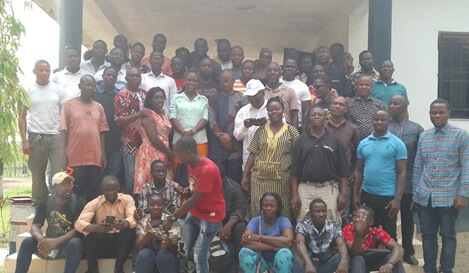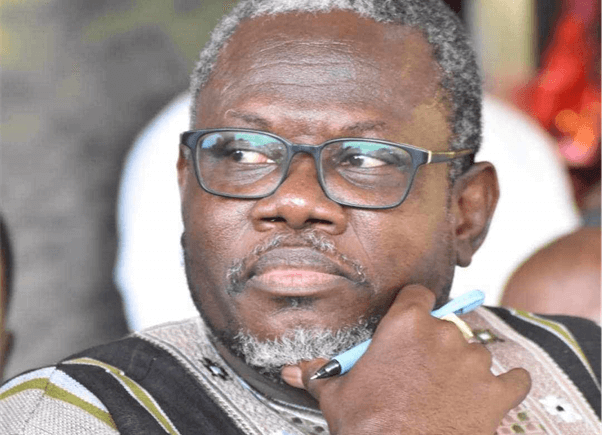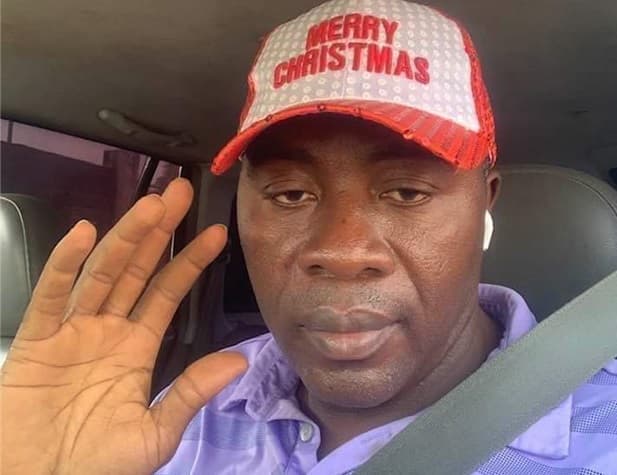Professionals and non-professionals at the Central Agricultural Research Institute (CARI) in Suakoko, Bong County, were thrilled when one of their own, Dr. James Sulonkwiley Dolo, was appointed to assume the role as the officer-in-charge at the research station.
Over years, professionals and non-professionals working at the institute have not only aligned themselves with political establishments over time, but they have sought political relevance thereby usurping the functions and autonomy of CARI as defined by Act that created the research station.
Established by an Act approved by the national legislature on March 22, 2014 as an autonomous agency, CARI is an apex public agricultural research center with statutory responsibilities to guide, coordinate and provide general oversight to all aspects of agricultural research in Liberia.
Turning over the gavel of authority on Thursday, March 28, 2024 at the central office in Suakoko, Mrs. Vanessa Kun-Mulbah, human resource officer congratulated Dr. Dolo for his preferment and called on all employees to cooperate with him as he conducts the affairs of the institute.
The human resource officer admonished employees to collaborate with the officer-in-charge to ensure that the research institute guides, coordinates and provides general oversight to all aspects agricultural research in Liberia. She promised full support for the betterment of the research institute.
Over the last 17 years, Dr. Dolo has served in various positions at the institute, including acting head of crops program and a focal person for many other research projects. “I have been in the employ of CARI for over 17 years; I think I have experienced enough to guide my actions as am OIC”, said Dr. Dolo.
The OIC began his statement by stating that he was deeply honored and humbled by the trust and confidence the honorable board of directors of CARI has placed in him by appointing him to serve the research institute at this time. He promised to contribute to the betterment of the institute and the welfare of his fellow employees (both professionals and non-professionals staff).
Additionally, the OIC expressed appreciation to the president of Liberia for the speedy reconstitution of the board of directors which is a clear demonstration of the president’s commitment to the successful implementation of the ARREST Agenda.
Dr. James S. Dolo, who has seven years of experience as a plant breeder, encouraged the workforce to do away with politics as this denies anyone access to quality time which is needed to conduct research. “We need to begin to depoliticize our speeches henceforth and begin to speak the languages that suit our noble professions.”
He challenged the staff to rather use professional languages while they are in or out of the research facility instead of political rhetoric because these two do not work perfectly together.
During his tenure as officer-in-charge, he will encourage the participation of everyone in the decision process going forward. According to him, the voices of everyone must be heard and considered for decision making. “No one should feel marginalized, hunted or despised under this administration, because everyone’s contribution is valuable to the forward march of CARI. If we work together as a team, we can achieve great success that benefits.”
Dr. Dolo also pointed out that since this administration is a caretaker one, he promised to maximize the time given him to serve the institute. “I therefore call on all of you to please cooperate with me to reintroduce the beekeeping program or apiculture, follow up on a few partnerships that CARI established during the past regime, and work closely with the livestock program to identify potential areas of intervention.
Among other things, the OIC said he is going to organize a team visit to CARI’s outstations in four counties, as well as to begin work on the CARI store if funds are available, to showcase research results to display variety of quality seeds among others.
“My appointment is an incredible opportunity to contribute to the betterment of our noble institute and the welfare of my fellow employees, both professionals and non-professionals staff,” Dr. Dolo added.
The officer-in-charge says if CARI underperforms as an agricultural research center, the ARREST Agenda of President Joseph Nyumah Boakai will certainly be jeopardized. “If we fill to play our role very well, the ARREST will crumble; and we must not be the cause of the failure of this agenda.”
According to Dr. Dolo, what he wants to see of the new CARI, is a group of scientists, technicians, and fields workers sitting around the table or sitting in the fields or under the Palava hut discussion and debating the past, present and future of CARI and making concrete decisions to rebuild the image of CARI and make the once respected CARI that everyone who knew the institute in past always speaks about.
“CARI can only be good or attractive again if we choose to make it so. Those simple things that easily divide us should be trashed and those things that enhance the unity and progress of the institute should be elevated and supported. You know, it takes time to build trust but it only takes a second to destroy it perpetually, he cautioned staff members.” He also used the occasion to call on the workers to support the administration in carrying out massive land preparation in the next few weeks.
For his part, Dr. Inoussa Akintayo, AfricaRice country representative who had been working with CAR since the 80s, congratulated the board of CARI for appointing one of its own to steer the affairs at the agricultural research station.
For the last six years, there had been a number of protest actions staged by staff over salary harmonization with persistent calls to improve the management structure of the institution.
“CARI is sick,” the AfricaRice country representative told the workers, “and nobody should expect sweet words from my side to say that everything is going well at CARI. It will be a crime from my side that everything is going well at CARI.”
Dr. Akintayo, who promised to work with the interim leadership to help bring back CARI to its pre-war years, added that the institution needs a doctor to cure the problem and it is somebody from within that knows the issue can solve it. “We assume that the OIC is that doctor because he knows the problems.”
Situated 180km northwest of Monrovia, like most of Liberia’s institutions, CARI was destroyed and suffered physical devastation and physical human resource losses as a result of the country’s 14 year-civil crisis.







